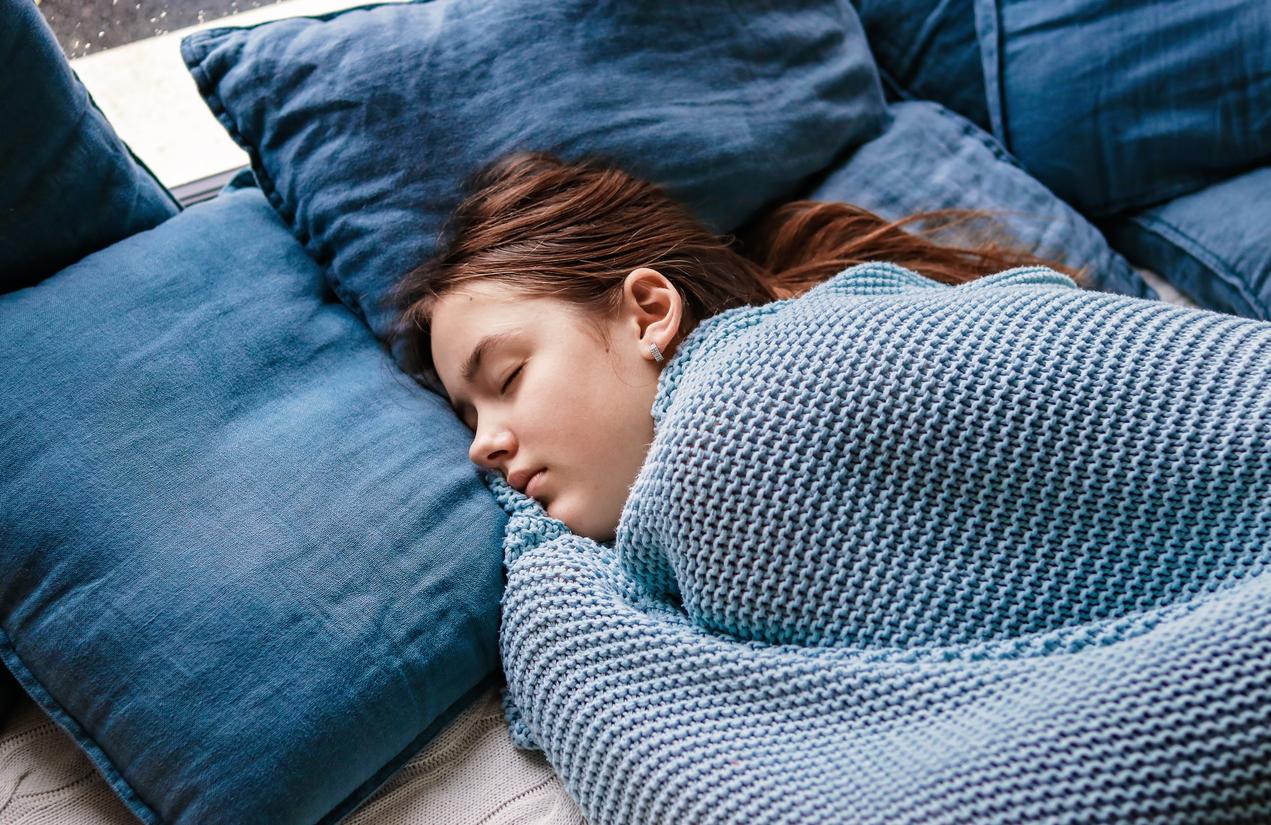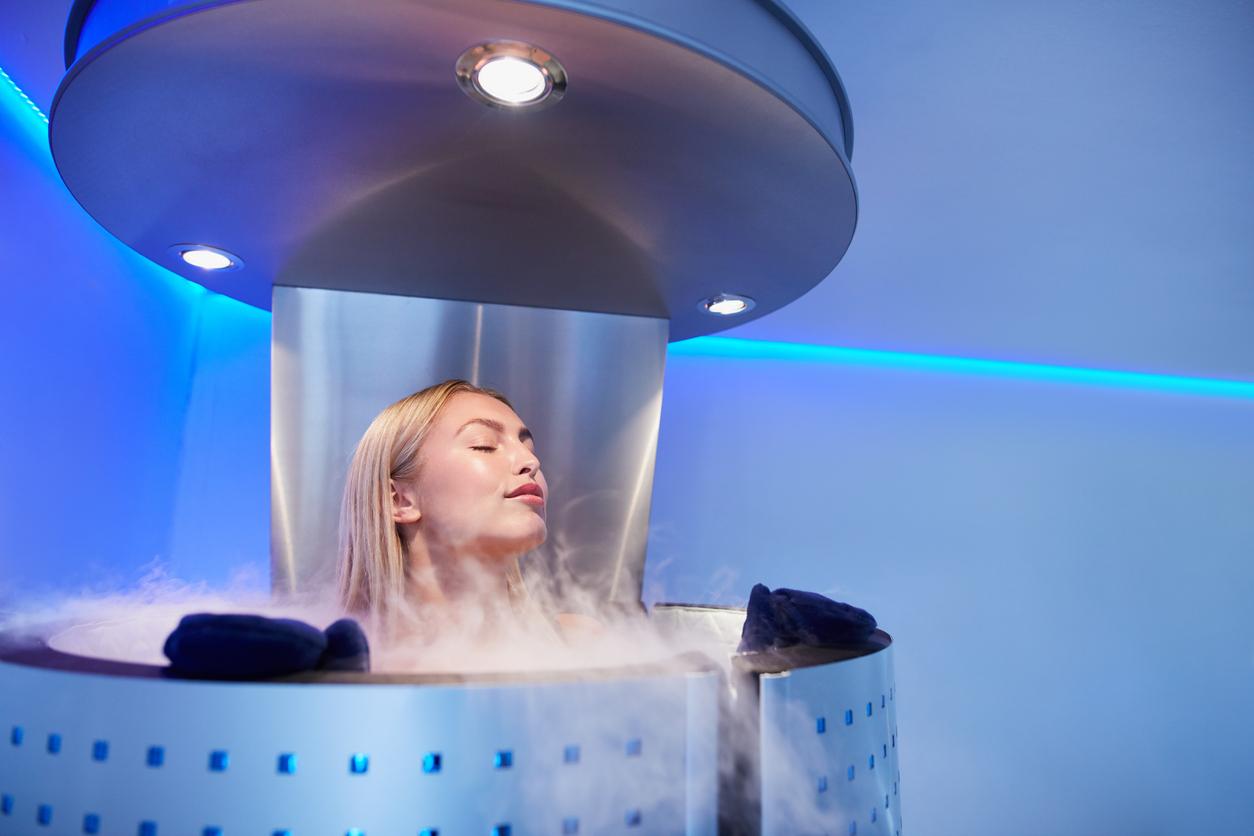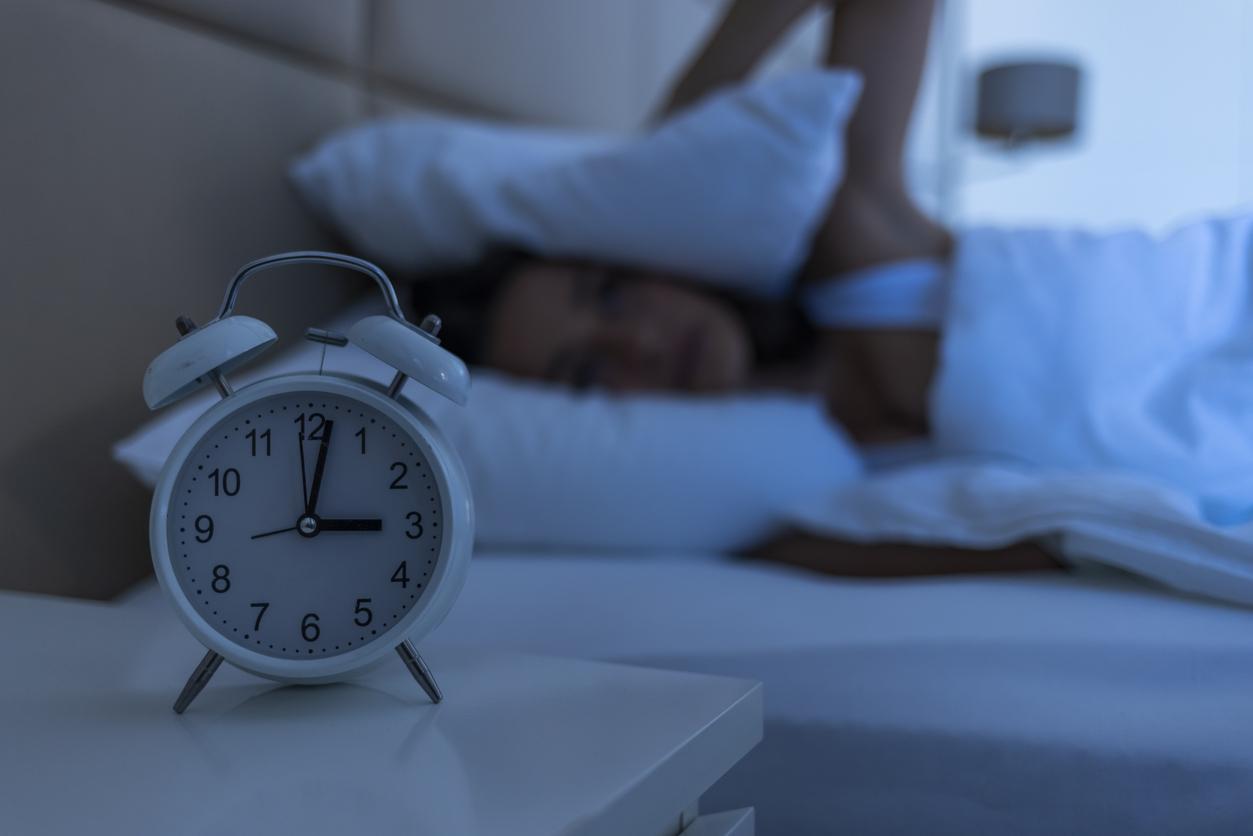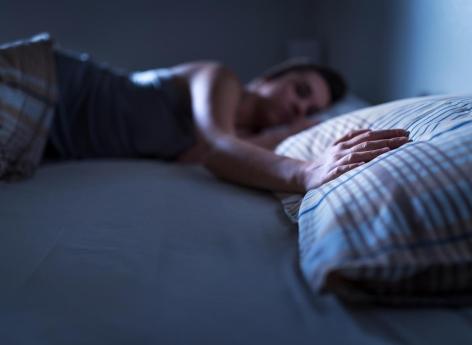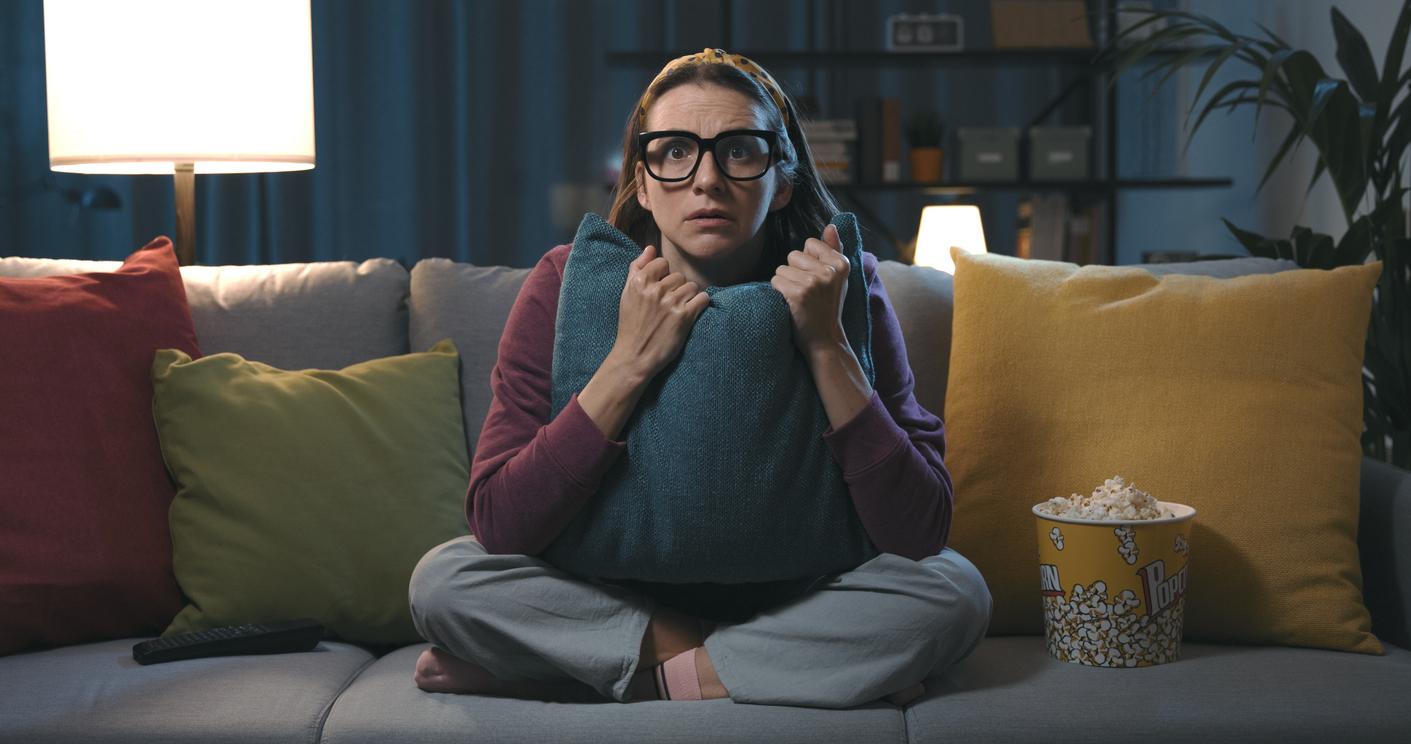People in their 40s who have poor sleep quality, such as difficulty falling or staying asleep, have more signs of poor brain health and the brain can age up to three years older.

- The study shows a link between poor sleep quality and signs of brain aging.
- People with the most sleep problems had an average brain age 2.6 years older.
- Poor sleep quality, difficulty falling asleep, difficulty staying asleep and waking up early were the characteristics that were linked to higher brain age.
The key to fighting brain aging would be to make sure you get a good night’s sleep in your forties. Indeed, a study, published online in the journal Neurology on October 23, 2024, shows that having poor sleep at age 40 would age the brain by almost 3 years.
Poor sleep at 40: the brain ages up to 3 more years
To better understand the links between sleep disorders and cognitive abilities, researchers brought together 589 people who had an average age of 40 years. Participants answered a questionnaire about their sleep habits at the start of the research and five years later.
Studying the responses identified six poor sleep characteristics: short sleep duration, poor sleep quality, difficulty falling asleep, difficulty staying asleep, early morning awakening and daytime sleepiness. Respondents were divided into three groups: those who had no more than one of these disorders (70% of people), those who had between two and three (22%), and finally those who had four. or more (8%).
The volunteers also had a brain scan 15 years after the study began. The researchers used artificial intelligence to determine the age of each participant’s brain from the images obtained.
After taking into account different factors such as age, gender, high blood pressure and diabetes, the scientists found that people with two or three sleep problems had an average brain age of 1.6 years of age. more than those who had little or no problems. The group that had the highest number of poor sleep characteristics had brains 2.6 years older on average than their actual age.
“Sleep problems have been linked in previous research to poor thinking and memory skills later in life, putting people at higher risk of dementia”specifies the author of the study, Clémence Cavaillès. “Our study, which used brain scans to determine the age of participants’ brains, suggests that poor sleep is linked to almost three additional years of brain aging starting in middle age.”

Sleep: 4 disorders particularly linked to brain aging
The study also demonstrated that poor sleep quality, difficulty falling or staying asleep, and waking up early were linked to greater accelerated aging, particularly if the patient consistently exhibited these four poor characteristics over time. five years.
“Our findings highlight the importance of addressing sleep issues earlier in life to preserve brain health, including maintaining a consistent sleep schedule, exercising, avoiding caffeine and drinking alcohol before going to bed and using relaxation techniques”explains author Dr. Kristine Yaffen of the University of California, San Francisco in a press release.
The team plans to focus future research on identifying new ways to improve sleep quality and studying the long-term impact of sleep on brain health in young people.









